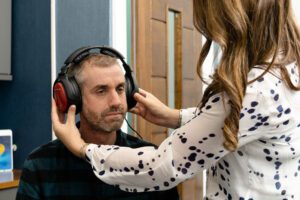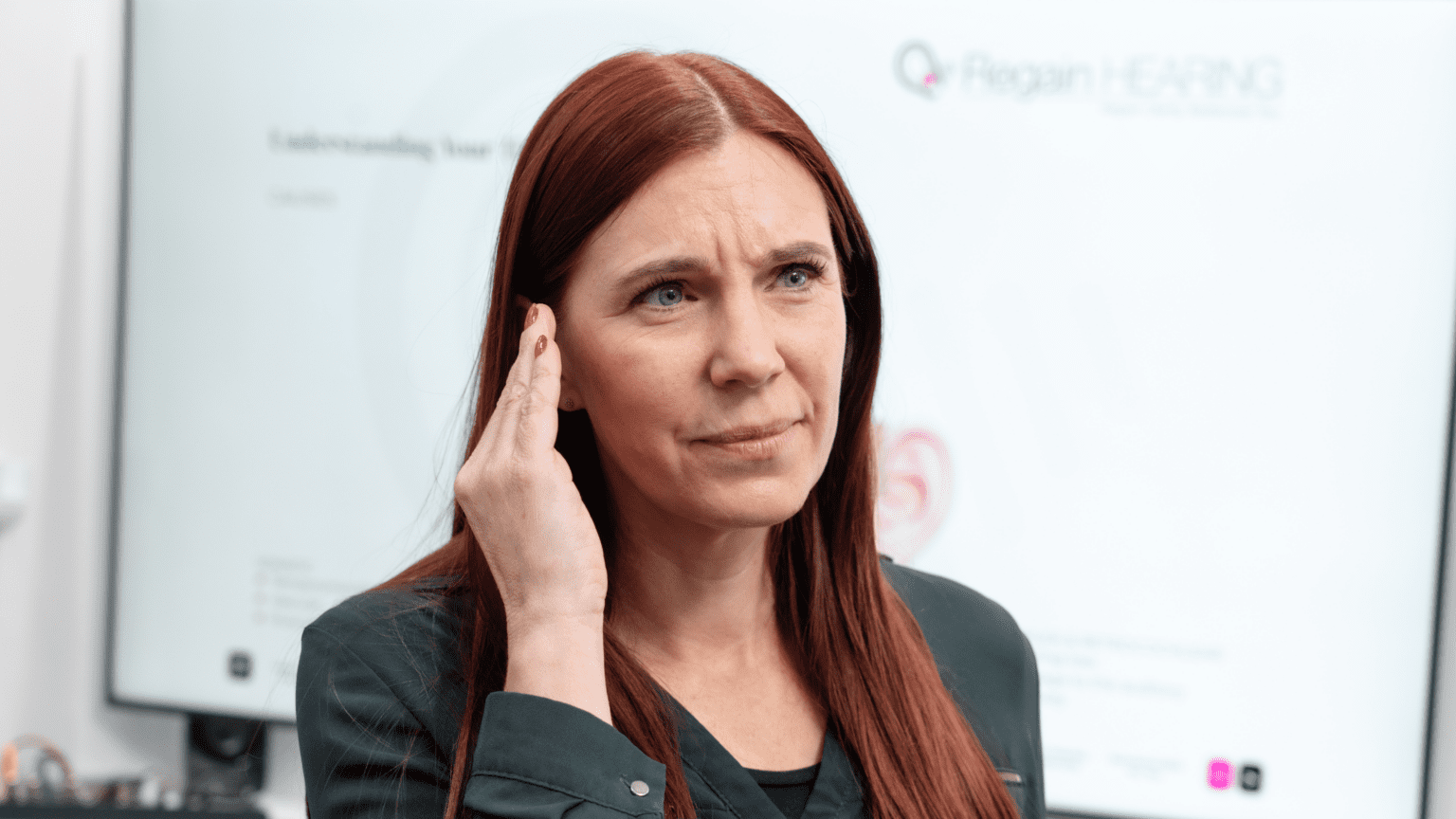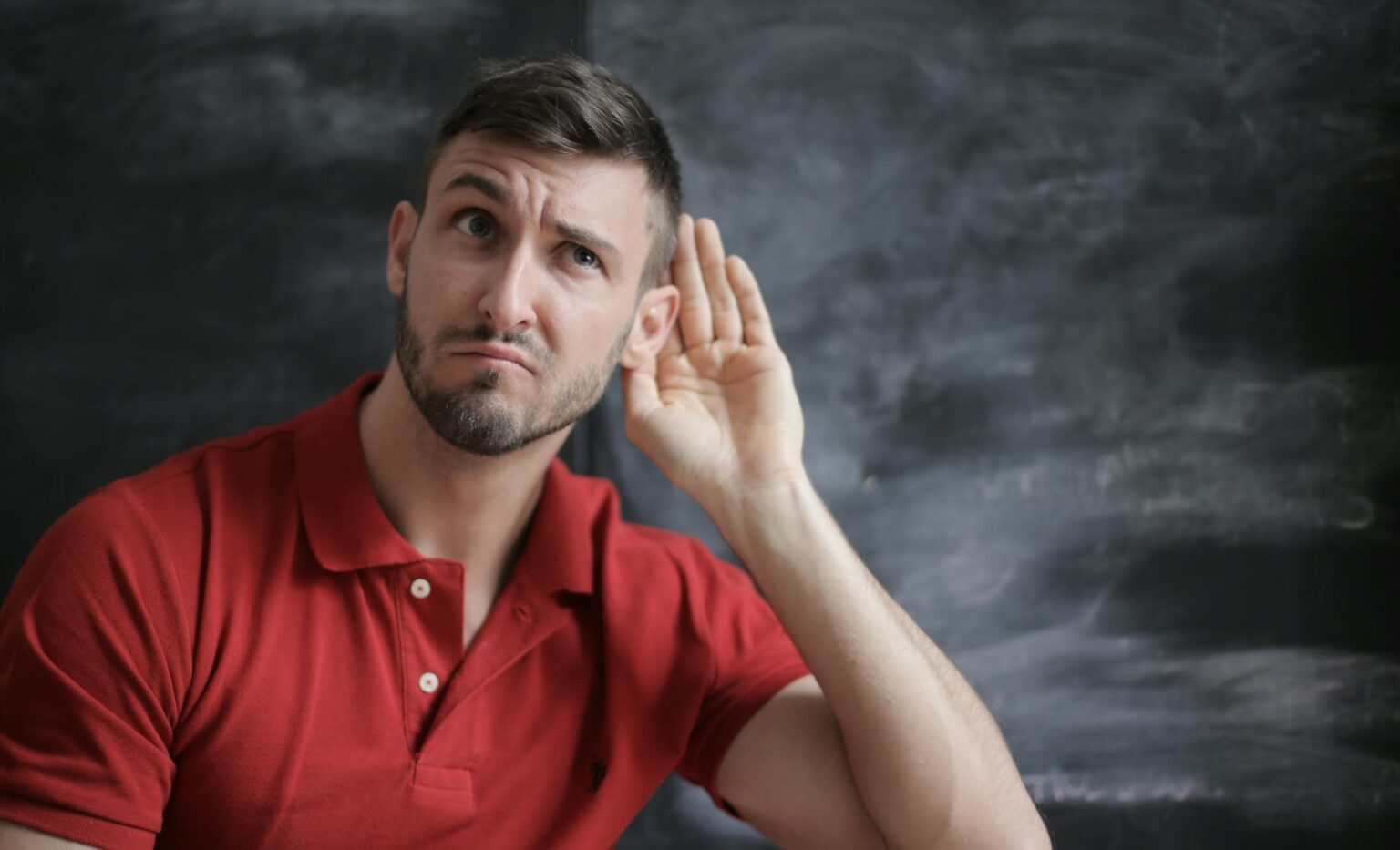Whether you have muffled hearing in one or both ears, find that sounds are muted or difficult to focus on or sense an ongoing noise within your ears, it’s important to work out what is causing the issue and seek treatment or advice to resolve the problem.
There are some scenarios where most people find their hearing slightly muffled, such as when leaving a concert or music venue after prolonged exposure to very loud noise or when an aeroplane is landing or taking off – this is down to the cabin pressure.
However, if your hearing is intermittently muffled, or you have a noise within your ear that comes and goes or remains constant, it could be down to several things.
In this article, we review what can cause muffled hearing sounds in your ears and possible treatments.
Common Causes of a Muffled Sound in One or Both Ears
We’ll begin by running through some of the frequent causes of a muffled noise. Still, we recommend booking an appointment with one of our experienced audiologists to ensure that you understand the reason for your hearing difficulties. They could be due to:
- Blockages in the middle ear often resulting from fluid accumulation due to an ear infection, allergies or a cold.
- A build-up of ear wax can create a similar blockage or contribute to the muffled noises – a quick removal procedure can remedy the problem.
- Conditions such as Ménière’s disease, which can lead to tinnitus, hearing disorders, and vertigo. The NHS Ménière’s disease page provides further information about symptoms and potential signs of this condition.
- Sudden Sensorineural Hearing Loss (SSHL): This is a rapid loss of hearing that can happen all at once or over a few days. It is considered a medical emergency. SSHL often comes with a feeling of ear fullness.
- Noise Exposure: Exposure to loud noises can temporarily or permanently damage your hearing. After being in a loud environment (like a concert), you might notice your hearing is muffled. This can be temporary, but repeated exposure can lead to permanent damage.
- Foreign Object: A foreign object lodged in the ear canal can block sound from entering the ear properly, leading to muffled hearing.
- Other conditions include autoimmune inner ear disease (AIED), which can cause periods of muffled hearing, and otosclerosis, where a growth in the middle ear creates muffled hearing that gradually worsens.
If you have a muffled sound in your ear, it may be temporary and can be due to any damage or inflammation impacting the sensitive inner ear. The guidance is to ensure you seek assistance since some short-term muffled hearing can be resolved quickly. In contrast, longer-term auditory issues may need prompt treatment to prevent them from recurring.
What do our Audiologists say?
I want to stress the importance of not ignoring muffled hearing in one ear. While it might seem like a minor inconvenience, it can be a symptom of underlying conditions that need immediate attention. Muffled hearing can range from something as simple as a blockage from earwax to more serious conditions like sudden sensorineural hearing loss, which is a medical emergency. Each ear tells a story, and when one starts to sound different, it’s a signal that shouldn’t be overlooked.
Lindsay Fletcher (RHAD), (BSHAA), FdA
Can a Muffled Noise in the Ear Be Permanent?
Most conditions, infections or blockages that cause a muffled sound or create a sense that noises are distorted can be treated or managed. Some conditions can lead to long-term muffled hearing, including:
- A perforated eardrum where this hasn’t healed properly.
- Exposure to very loud and sustained noises – such as explosions for people working in demolition.
- Benign growths or lesions on the auditory nerve that can cause sensorineural hearing loss.
- Presbycusis – an age-related hearing condition that can lead to ringing or muffled noises in the ear and difficulty hearing certain noises or sounds.
Related Reading: What can tinnitus sound like?
If our consultant believes that a muffled sound is caused by presbycusis, there remain several treatments and devices that may help, including high-quality hearing aids and therapies to prevent ear wax buildup that can exacerbate the issue.
The National Council on Ageing has published a Presbycusis Fact Sheet that offers additional information and statistics.
How Do I Know if a Muffled Sound in My Ear is Serious?
In the majority of cases, muffled noises begin in one ear or the other. The most likely reason is an ear infection and accumulation of ear wax or other blockages. Anything that affects the inner ear, such as a sinus infection or hay fever, can create muffled noises and be well managed or eliminated with professional treatment.
Remedies might include removing ear wax or taking antibiotics, for example, with follow-up assessments to verify that hearing has returned to normal or that the muffled noise has stopped.
Many people also benefit from regular ear wax microsuction, which can contribute to long-term auditory health and prevent issues from persisting or returning from time to time.
The primary advice is to have any hearing issues looked at since even the most minor causes will normally require treatment or management to ensure they don’t worsen or lead to more sustained hearing difficulties.
How Will an Audiologist Diagnose the Cause of Muffled Hearing?
We conduct a comprehensive range of assessments and tests that can determine the cause of your hearing problems and explain how these evaluations work and what to expect in our guide to Different Types of Hearing Tests.
The typical starting point is to ask a series of questions about what the muffled noise sounds like, how often it occurs, whether it is in one or both ears and how long the problem has existed. From there, a practitioner will examine the ear to look for indications of wax build-up, a blockage or infection.
Assessments can measure your ability to hear sounds of varying frequencies and tones in both ears. They may include tympanometry, where we check the pressure in your inner ear, and a video otoscopy, where an audiologist uses a small camera to look for problems within your ear canal.
If an audiologist spots something that is contributing to your muffled hearing, they can recommend further tests to make a confirmed diagnosis or might refer you to a specialist who can provide treatment to restore your hearing.
Is it Worth Booking a Hearing Test?
It is essential you consult a qualified, experienced audiologist if you have any concerns about the quality of your hearing or hear a muffled sound – without treatment, ongoing problems caused by distracting noises within your ears or an inability to hear can impact your communication and cause issues with balance and sleep.
Some people find that a muffled noise makes it hard to distinguish between certain sounds, making conversations difficult and affecting your ability to listen to music or watch TV. Severe muffled noises might also create issues with driving, operating machinery or performing a job.
Frequently Asked Questions
What if one ear feels muffled all of a sudden?
A sudden muffled feeling in one ear could be caused by earwax buildup, fluid in the ear, or a change in air pressure (such as after flying or diving). It could also be due to an ear infection or Eustachian tube dysfunction. If the sensation doesn’t go away after a short time, or if it’s accompanied by dizziness, hearing loss, or ringing (tinnitus), it’s best to see a healthcare professional to rule out any serious issues.
What if there is no pain?
Even if there’s no pain, a muffled ear could still indicate a blockage, fluid retention, or an underlying issue like sudden sensorineural hearing loss (SSHL). Lack of pain doesn’t necessarily mean there’s nothing wrong, so if the muffled sensation persists, it’s worth getting checked out by a doctor or audiologist.
Ear feels muffled but no wax?
If your ear feels muffled but there’s no visible wax, the cause could be fluid trapped behind the eardrum, allergies, sinus congestion, or pressure changes. Another possibility is mild hearing loss or Eustachian tube dysfunction, which affects the way your ear equalises pressure. If the issue continues or worsens, a professional evaluation can help determine the cause and best course of action.
Regain Hearing provides a full scope of hearing tests and consultations for muffled hearing across our eight practices throughout the southeast. Please get in touch at any time if you have any questions, are unsure of the most appropriate appointment to book, or would like to discuss your hearing issues.

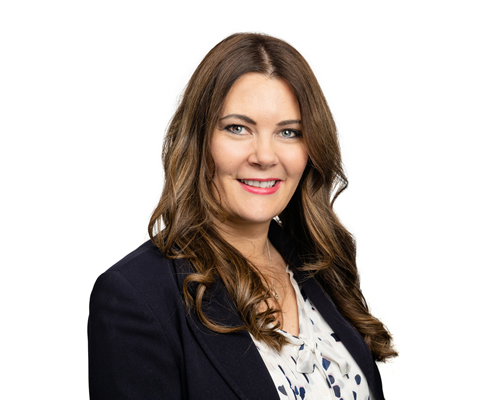
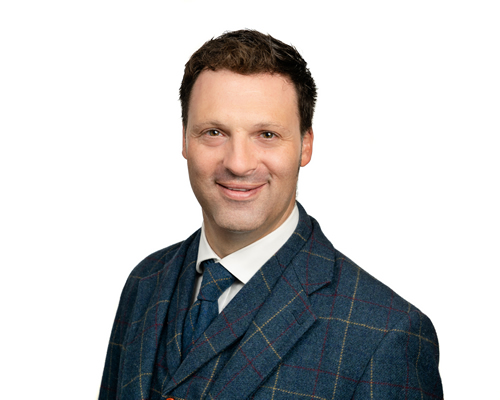
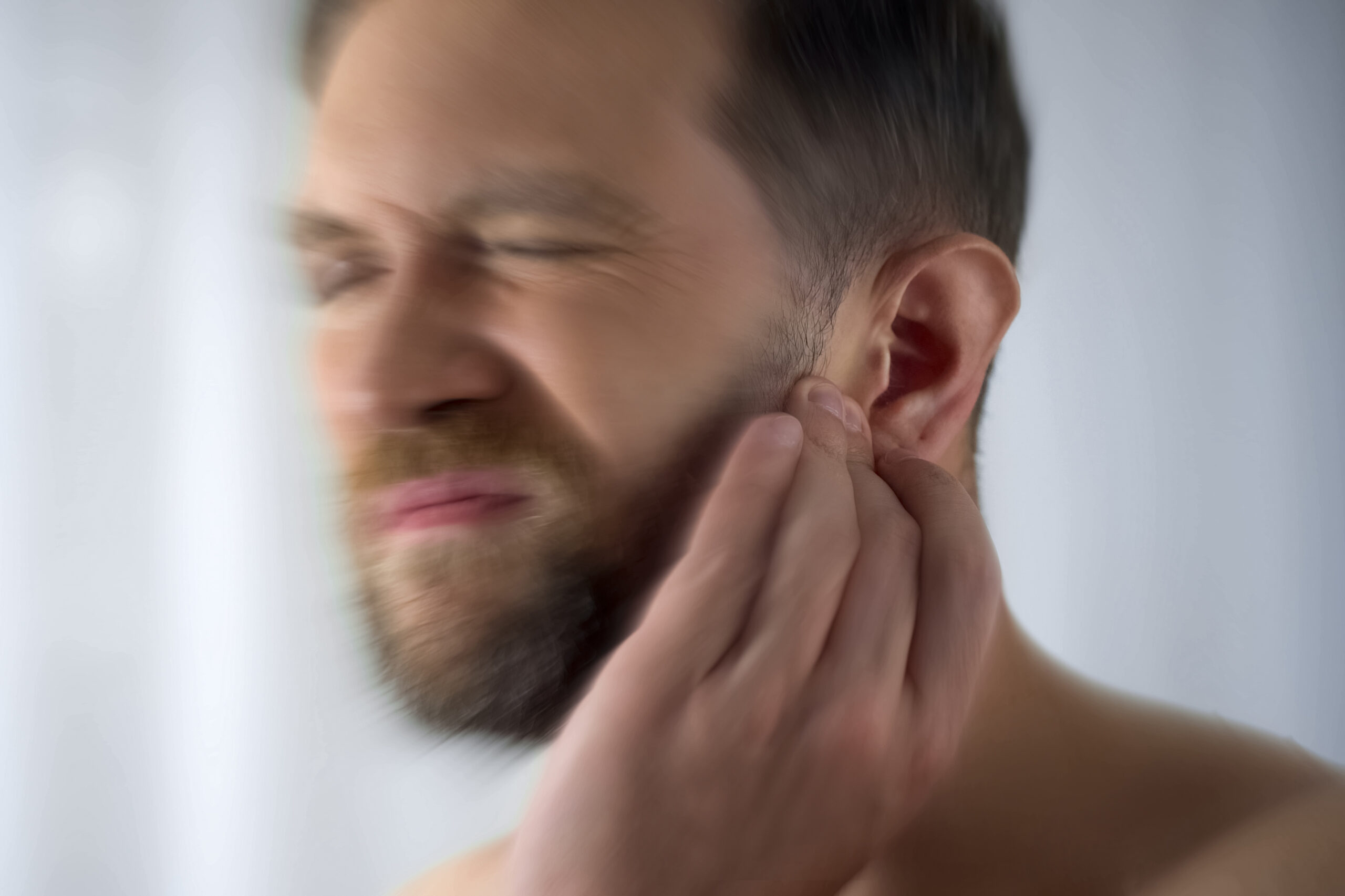
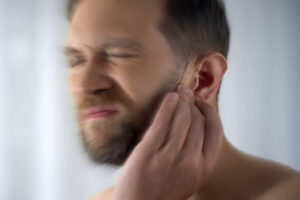
 I want to stress the importance of not ignoring muffled hearing in one ear. While it might seem like a minor inconvenience, it can be a symptom of underlying conditions that need immediate attention. Muffled hearing can range from something as simple as a blockage from earwax to more serious conditions like sudden sensorineural hearing loss, which is a medical emergency. Each ear tells a story, and when one starts to sound different, it’s a signal that shouldn’t be overlooked.
I want to stress the importance of not ignoring muffled hearing in one ear. While it might seem like a minor inconvenience, it can be a symptom of underlying conditions that need immediate attention. Muffled hearing can range from something as simple as a blockage from earwax to more serious conditions like sudden sensorineural hearing loss, which is a medical emergency. Each ear tells a story, and when one starts to sound different, it’s a signal that shouldn’t be overlooked. 